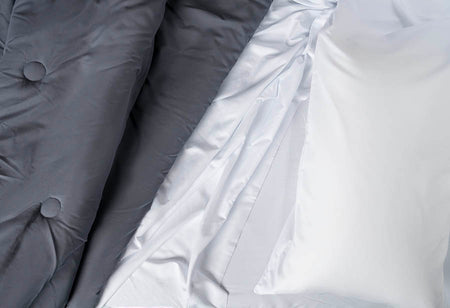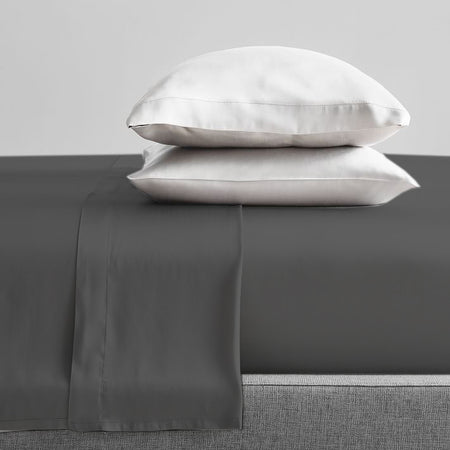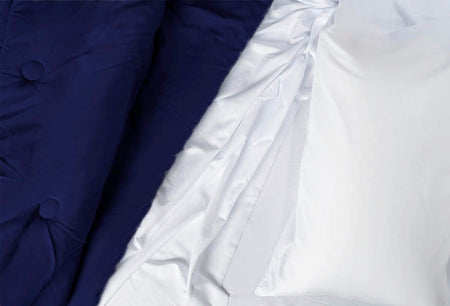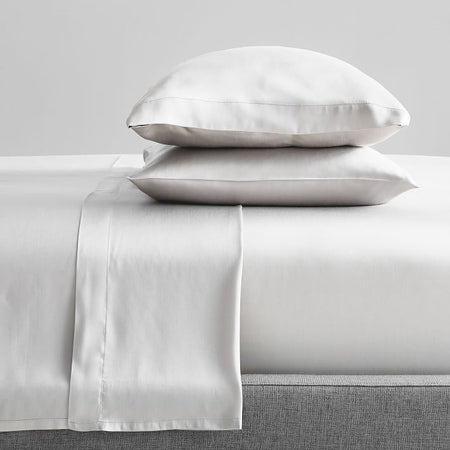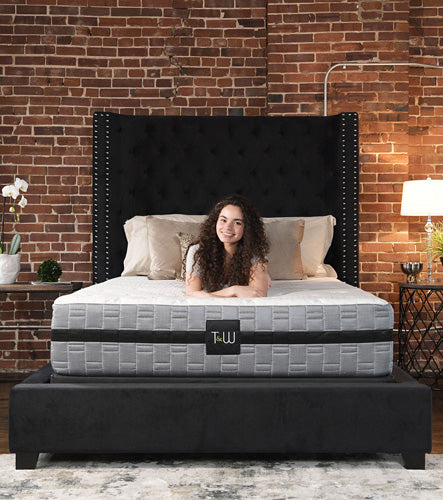We all know the winning combination to a perfect night’s sleep. It usually begins with a comfortable mattress, whatever that may mean for you, and a well supporting box spring. Then, depending on the person, you may opt for a down feather blanket, or maybe even just a set of sheets, along with your favorite type of pillow; basically whatever it is that makes you feel most comfortable when trying to fall asleep. Well, what happens even if you have everything that makes it easier and more pleasant for you when you go to sleep, only to find yourself still waking up in the middle of the night covered in sweat? Surely, there is no more of an uncomfortable feeling then when you are woken up from an otherwise good night's sleep drenched in your own sweat.

What are night sweats? Should I be concerned about my health?
If you have ever personally experienced this situation, then you may already know that this is otherwise known as night sweats, and it is fairly common. A recent study found that around 41% of patients who had recently visited their family doctor had reported experiencing night sweats at least once in the recent past. For those who do not know, night sweats are basically just as they sound, they are a significant perspiration during sleep. While sometimes night sweats are nothing to be worried about as they are simply just in connection to sleeping under too many blankets or having the thermostat up too high, there are some medical conditions associated with night sweats. These conditions are often underlying causes for repetitive experiences of excessive sweating in the night:
- Menopause- due to change in hormones, nearly 75% of women either in perimenopause or menopause experience night sweats.
- Bacterial infection- certain infections such as endocarditis or HIV have been linked to excessive night sweating.
- Hypoglycemia- Also known as low blood sugar, common in people with diabetes
- Cancer- Some cancers have been associated with night sweats, such as thyroid and prostate cancer.
- Endocrine disorders- Endocrine disorders, especially things like hypothyroidism, play a huge role in hormone regulation.
- Medications- Side effects of certain medications can cause excessive sweating at night, for instance up to 22% of depression medication causes night sweats in patients.
- Substance abuse- Another major cause would be substance abuse. The overuse of drugs or alcohol can cause excessive sweating with asleep, especially during the withdrawal stage.
- Neurological conditions- Things like having a stroke or a spinal cord injury are known to increase sweating at night.
- Anxiety disorders- Anxiety disorders don't just manifest themselves mentally or emotionally, but physically as well. A common symptom of anxiety disorders are night sweats.
- Undiagnosed sleep apnea- Sleep apnea is a disorder that stops breathing during sleep. This has numerous side effects and if left untreated could result in excessive sweating at night.

Of course, these are just a few of the most common conditions associated with night sweats. Keep in mind, not everyone who experiences night sweats will have an underlying condition. So, before visiting a doctor, check out the Bedding Mart’s helpful tips to help you stop sweating in bed at night.
Ten tips to help reduce, or even eliminate excessive sweating at night:
- Reduce temperature of bedroom- This one seems pretty self- explanatory, if you find that you are waking up in sweats, try turning down the thermostat before going to bed.
- Use less bedding- Try switching out a heavy comforter for a lightweight blanket and some cool cotton sheets. This will allow body heat to move more freely, instead of getting trapped in the mattress and in the blankets.
- Sleep in lightweight clothing- You may even opt to try and sleep in no clothing at all, but many experts suggest trying to wear loosely fitting and breathable fabric, such as cotton, or silk instead of heavy pajamas.
- Keep ice water next to your bed- Keeping cold water next to you while you sleep will ensure that you have something to keep you cool if you do start to sweat at night.
- Invest in a cooling mattress- Sometimes the mattress we are sleeping on collects heat throughout the night. Try investing in a cooling mattress, such as the Taylor & Wells Glacier Plush Mattress. These are designed to help you sleep much cooler at night.
- Keep a cool pack under your pillow- A simple life-hack that will always keep the “cool side” within reach. Sticking an ice pack under your pillow will help keep your neck and head cool throughout the night.
- Don't eat spicy foods- This is especially true up to an hour before going to bed. Spicy foods are known to be a cause of increasing the internal temperature of the body, which may cause you to sweat in your sleep.
- Get a fan- Perhaps one of the easiest ways to reduce sweating at night is by purchasing a room fan. Fans are relatively cheap and add a nice breeze to help keep you cooler at night. Not to mention, they offer a sound that has been known to lull people asleep. Many people report not being able to fall asleep without one.
- Allow air circulation- Try opening your bedroom window, this will allow for better air flow and circulation. This option is great for those who aren’t getting enough relief from turning down the thermostat, or if perhaps the fan is just too loud.
- Avoid caffeine and alcohol just before bed- While caffeine has been known to be relatively harmless, is still a stimulant and has been known to increase the night sweats. Additionally, alcohol has been known to cause increases in your body temperature. It is best to avoid both at least one hour before going to bed.

It is always best to know when to contact your doctor about any potential medical condition. If you have tried to eliminate excessive sweating at night and have not had any success, then it may be best to speak with your doctor. Do not worry, though. Night sweats are fairly common and many times they are treatable. Who knows, It may be something just as simple as the weather, your diet, or what you do right before going to bed. We know how important it is to get a good night's sleep, so we hope this information was useful!






